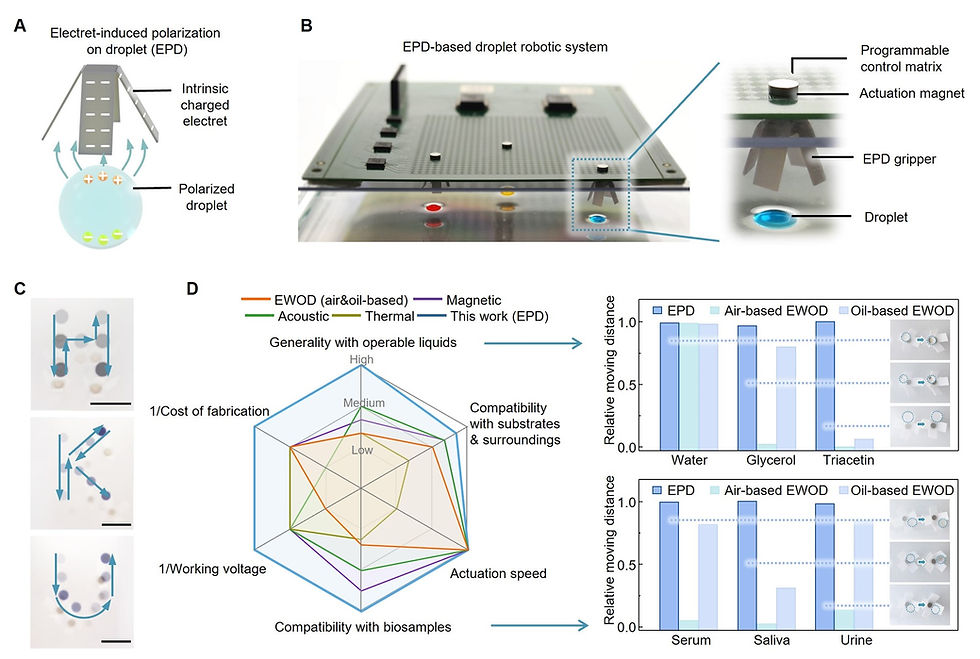A droplet robotic system enabled by electret-induced polarization on droplet
- failyf22
- Aug 6, 2024
- 1 min read
Professor Anderson H.C. Shum of the Department of Mechanical Engineering and his Microfluidics and Soft Matter Team worked on the research titled “A droplet robotic system enabled by electret-induced polarization on droplet”. The research was recently published by Nature Communications on July 23, 2024
Details of the publication:
“A droplet robotic system enabled by electret-induced polarization on droplet”
Authors: Ruotong Zhang, Chengzhi Zhang, Xiaoxue Fan, Christina C. K. Au Yeung, Huiyanchen Li, Haisong Lin & Ho Cheung Shum.
Article in Nature Communications, https://doi.org/10.1038/s41467-024-50520-9
Abstract:
Robotics for scientific research are evolving from grasping macro-scale solid materials to directly actuating micro-scale liquid samples. However, current liquid actuation mechanisms often restrict operable liquid types or compromise the activity of biochemical samples by introducing interfering mediums. Here, we propose a robotic liquid handling system enabled by a novel droplet actuation mechanism, termed electret-induced polarization on droplet (EPD). EPD enables all-liquid actuation in principle and experimentally exhibits generality for actuating various inorganic/organic liquids with relative permittivity ranging from 2.25 to 84.2 and volume from 500 nL to 1 mL. Moreover, EPD is capable of actuating various biochemical samples without compromising their activities, including various body fluids, living cells, and proteins. A robotic system is also coupled with the EPD mechanism to enable full automation. EPD’s high adaptability with liquid types and biochemical samples thus promotes the automation of liquid-based scientific experiments across multiple disciplines.

Note: Pictures are reproduced under the terms of the CC-BY license. [Nat. Commun. 2024, 15, 6220]





Comments